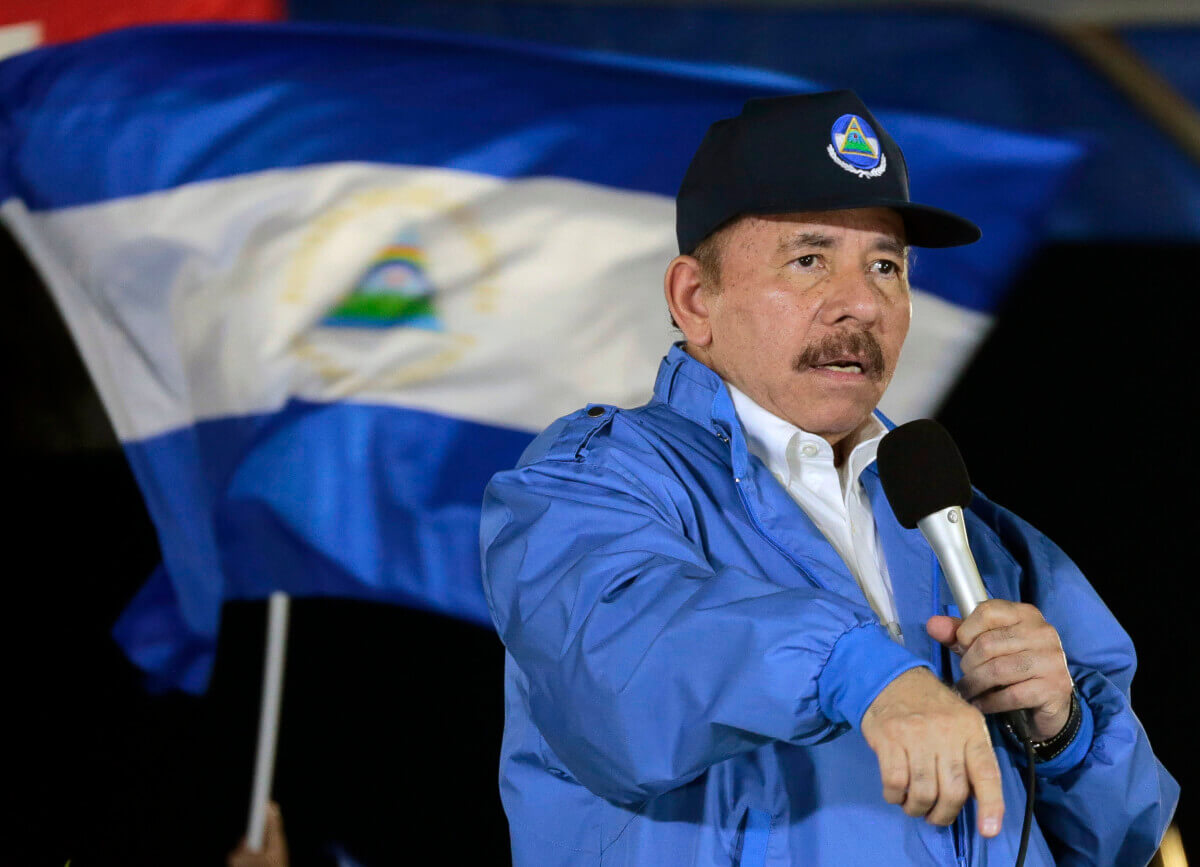Nicaragua’s parliament, in which the ruling party holds a commanding majority, passed a law on Monday that effectively allows President Daniel Ortega to arbitrarily ban opposition candidates from running in the November 2021 presidential election. In response, the United States (US) has levied sanctions against key officials in the Ortega regime. 70 legislators voted in favour of the bill, while just 14 voted against it.
The law permits Ortega to unilaterally designate citizens as “terrorists”, “coup-mongers”, or “traitors to the homeland”, which would effectively bar them from running for office. The 75-year-old has been in power since 2007, and previously ruled from the country from 1979 to 1990. His power is derived from the Sandinista revolution in 1979, when he and his allies overthrew dictator Anastasio Somoza Debayle. Since then, however, his appeal has waned and he has had to resort to nefarious methods to stay in power.
After losing the election in 1990 and failing to gain re-election in two elections after that, he returned to power in 2007 and secured re-election in 2011 and 2016. His re-elections are widely believed to be a product of his control over key government institutions such as the courts. In fact, he did away with term limits in 2016 to secure another term in office. The latest law once again cements his iron grip over the nation’s government.
In 2018, following a wave of protests by citizens and opposition politicians against his regime, Ortega used the terms in the new law. In fact, at least 325 people were killed during the demonstrations that began following cuts to social security benefits and eventually morphed into demands for Ortega to resign.
Ortega can now use those protests as a justification to nullify virtually the entire opposition. The new law bands candidates who “who lead or finance a coup ... encourage foreign interference, ask for military intervention ... propose or plan economic blockades, applaud and champion the imposition of sanctions against Nicaragua or its citizens”.
Under the law, anyone named by Ortega will be considered “traitors to the homeland, and for that reason may not run for public office”; treason carries a possible prison term of 15 years in the country.
Juan Sebastián Chamorro, the leader of the opposition coalition Alianza Cívica, denounced the new law and said that if anyone should be punished for treason, it should be Ortega himself, saying, “The one who they should apply this law to is Daniel Ortega, for all the human rights violations he has committed and the damage he has done.”
Opposition politicians contend that the law violates the Constitution’s “guarantee of political rights for all citizens”. In fact, the Alianza Cívica was only formed this year because opposition parties felt that they had no chance of unseating Ortega otherwise.
These developments have prompted the Trump administration to level sanctions against Ortega’s regime, adding him to the Treasury Department’s ‘blacklist’. The sanctions target: Vice President of the Nicaraguan Supreme Court of Justice, Marvin Ramiro Aguilar Garcia; a Deputy of the National Assembly, Walmaro Antonio Gutierrez Mercado; and a Chief of the Nicaraguan National Police in Leon, Fidel De Jesus Dominguez Alvarez. In fact, the US has sanctioned 27 Nicaraguan officials over the past three years, including Ortega and Vice President Murillo and their families, as well as the speaker of the house, Gustavo Porras.
The Treasury Department holds these individuals responsible for “undermining Nicaragua’s democracy” and for “coopting judicial or financial reporting mechanisms to support the Ortega regime’s systematic identification, intimidation, and punishment of political opposition”. Secretary Steve Mnuchin said, “President Ortega and his regime prioritize personal gain and power over Nicaraguans’ calls for reform,” adding, “This Administration remains committed to targeting the Ortega regime by seeking out and exposing those who continue to suppress the democratic will of the Nicaraguan people.”
The US has also used the Organisation of American States (OAS) as a vehicle to push for a retraction of the law, with the organization saying that it “denies the Nicaraguan people the right to freely choose their representatives”. Ortega has also faced similar pressure from the European Union.
The Nicaraguan leader has decried the sanctions, saying those who back the US are “not Nicaraguans”. He said, “I don’t know how they think they are going to participate in an election with that attitude,” adding, “They are terrorists, criminals and traitors, because they continue to ask for more sanctions.”
Likewise, the speaker of the national assembly, Gustavo Porras, said, “Those who ask for international sanctions against Nicaragua or its officials should be candidates in the empire.”
It is likely that the latest law will inspire the reignition of nationwide protests and further undermine the legitimacy and credibility of Ortega’s rule as well as that of the upcoming election.
Nicaragua Passes Law to Nullify Opposition, Prompting US Sanctions
The Nicaraguan parliament, in which President Daniel Ortega’s Sandinistas hold a majority, passed a law that allows the ruling party to arbitrarily ban candidates from running in next year’s election.
December 23, 2020

IMAGE SOURCE: INTI OCON / AFP / GETTY IMAGESNicaraguan President Daniel Ortega
